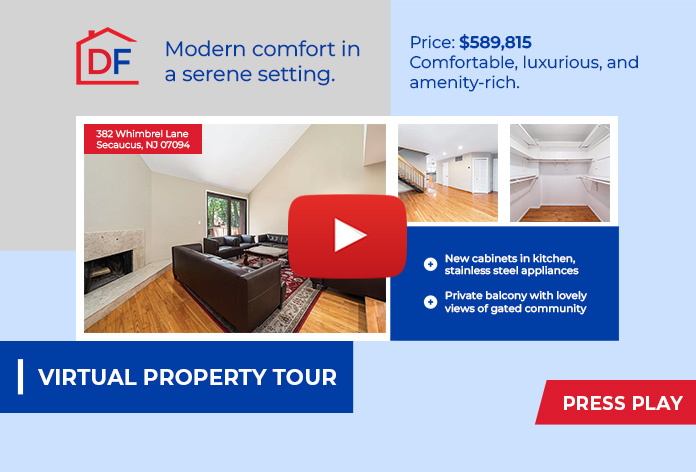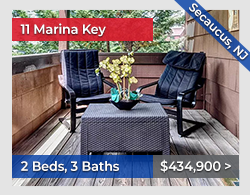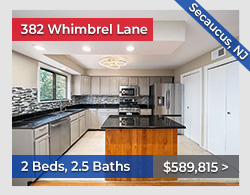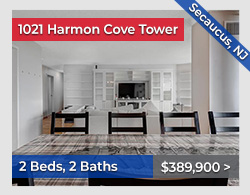Choosing to rent a home can provide you with unexpected advantages like flexibility in lease terms, freedom from maintenance costs, access to amenities, significant financial savings, lower initial payment, and the luxury of not being tied down in long-term commitments. Renting offers a host of benefits that may surprise you, making it a feasible alternative to buying.
Key Takeaways
- Increased flexibility in housing duration and location
- Lower maintenance costs with landlord responsibility for repairs
- Access to amenities like fitness facilities and social events
- Financial savings with no property taxes or large down payments
- Minimal down payment, allowing for better cash flow management
Increased Flexibility
When considering the benefits of renting a home, one cannot overlook the increased flexibility it offers in today's fast-paced housing market. Short-term leases are a key feature that provides renters with the freedom to adapt quickly to changing circumstances. Landlords often offer lease durations as short as six months, allowing renters the flexibility to relocate for job opportunities or personal reasons without being tied down by a long-term commitment. This flexibility is particularly advantageous for individuals who anticipate changes in their living situation or financial status.
Moreover, renting provides relocation freedom that is unmatched by homeownership. Renters have the ability to move more frequently without the burden of selling a property, dealing with real estate agents, or worrying about market conditions. This freedom enables renters to explore new neighborhoods, cities, or even countries with ease, making it an attractive option for those who value adaptability and variety in their living arrangements. In a dynamic housing market, the flexibility offered by short-term leases and relocation freedom can be invaluable for individuals seeking to navigate life's changes with ease.
Lower Maintenance Costs
When renting a home, you can benefit from cost-effective maintenance solutions that are often included in your rental agreement. Professional upkeep services, such as landscaping and appliance repairs, are typically handled by the landlord or property management company, saving you time and money. Additionally, renting reduces your repair responsibilities, as major issues are usually the landlord's responsibility to address.
Cost-Effective Maintenance Solutions
Regular maintenance costs are significantly lower when renting a home compared to buying one, providing a cost-effective solution for budget-conscious individuals. Renting offers several advantages regarding cost-effective maintenance solutions:
- Maintenance Savings: Landlords typically cover the costs of necessary repairs and maintenance, saving you from unexpected expenses.
- Timely Repairs: Property management companies or landlords often have a network of reliable contractors, ensuring that any issues are promptly addressed.
- Cost-Effective Upkeep: Since you are not responsible for major repairs, you can allocate your funds toward other investments or savings goals.
- Convenience Benefits: Renting allows you to enjoy a hassle-free living experience without the burden of handling maintenance tasks yourself.
- Professional Expertise: Property managers or landlords are experienced in property maintenance, ensuring that the work is done efficiently and to a high standard.
Professional Upkeep Services
Landlords or property management companies often offer professional upkeep services as part of the rental agreement, contributing to lower overall maintenance costs for tenants. Property management firms typically have established relationships with maintenance professionals, allowing for cost-effective and timely repairs. By outsourcing maintenance tasks to skilled professionals, tenants can benefit from reduced expenses and efficient services.
| Professional Upkeep Services | Benefits | Description |
|---|---|---|
| Timely Repairs | Reduced Downtime | Quick response to maintenance issues minimizes disruptions to your daily life. |
| Preventive Maintenance | Long-Term Cost Savings | Regular inspections and upkeep help prevent major issues, saving you money in the long run. |
| Skilled Professionals | Quality Workmanship | Trained experts guarantee that repairs are done right the first time, avoiding future complications. |
Property management companies often handle the coordination and oversight of these maintenance benefits, streamlining the process for tenants. This professional approach not only saves tenants money but also provides peace of mind, knowing that their home is in good hands.
Reduced Repair Responsibilities
By opting to rent a home, you can greatly decrease your repair responsibilities, leading to lower maintenance costs overall. This reduction in repair responsibilities offers significant advantages, including maintenance savings and repair convenience. Here are some key points to take into account:
- Maintenance Savings: When you rent a home, the responsibility for major repairs often falls on the landlord, saving you from potentially expensive maintenance costs.
- Repair Convenience: As a renter, you can enjoy the convenience of having repairs and maintenance tasks handled by the landlord or property management company, reducing the time and effort you need to invest.
- Reduced Financial Burden: By not having to budget for unexpected repairs or regular maintenance, you can better predict and manage your monthly housing expenses.
- Professional Expertise: Landlords typically have a network of trusted professionals to handle repairs, ensuring that the work is done efficiently and effectively.
- Long-Term Cost Benefits: Lower maintenance costs can translate into overall savings over time, making renting a more financially attractive option.
Access To Amenities
Accessing a wide range of amenities is a key advantage that renters often enjoy over homeowners. When you opt for renting, you gain access to a variety of community events and social gatherings organized within the rental complex. Additionally, most rental properties offer fitness facilities and recreational activities onsite, providing convenience and promoting a healthy lifestyle. To illustrate the benefits of renting regarding amenities, consider the following table:
| Amenities | Renters | Homeowners |
|---|---|---|
| Community Events | ✓ | - |
| Social Gatherings | ✓ | - |
| Fitness Facilities | ✓ | - |
| Recreational Activities | ✓ | - |
| Onsite Convenience | ✓ | - |
As demonstrated in the table, renters have a clear advantage in accessing a diverse array of amenities compared to homeowners. This not only enhances the overall living experience but also promotes social interactions and well-being.
Financial Savings
When considering the financial aspect of renting versus buying a home, it's crucial to acknowledge the cost-effectiveness of renting. Renting often allows for a more flexible financial commitment compared to the substantial upfront costs associated with buying a home. This flexibility can be a significant advantage, especially in uncertain economic times.
Cost-Effectiveness Of Renting
Renting a home can lead to significant financial savings compared to buying one, making it a more cost-effective option for many individuals. When considering the cost-effectiveness of renting, several key factors come into play:
- No Property Taxes: As a renter, you are not responsible for property taxes, which can be a substantial expense for homeowners.
- No Maintenance Costs: Homeowners bear the burden of maintenance and repair costs, while renters can often rely on landlords to handle these issues.
- Lower Insurance Costs: Renter's insurance is typically more affordable than homeowner's insurance, providing another avenue for savings.
- Flexibility In Location: Renting allows for more flexibility in choosing where to live without the high costs associated with buying and selling property.
- No Down Payment: Renting does not require a large upfront down payment, freeing up funds for other investments or savings.
These financial considerations make renting an attractive option for those looking to save money and maintain flexibility in their living arrangements.
Flexibility In Financial Commitments
When it comes to financial savings and flexibility, choosing to rent a home instead of buying can provide immediate benefits. Renting offers financial freedom by requiring a lower upfront cost compared to purchasing a property, allowing you to allocate funds to other investments or savings opportunities. This budget flexibility can be especially advantageous for individuals looking to diversify their portfolios or build an emergency fund.
Moreover, renting reduces financial stress by eliminating the need for costly maintenance and repairs that homeowners often face. Landlords are typically responsible for property upkeep, relieving you of unexpected expenses. This reduced financial burden can lead to increased savings opportunities, as you can allocate the money saved from maintenance costs toward long-term financial goals or investments.
Minimal Down Payment
With renting a home, you can benefit from the advantage of a minimal down payment compared to buying a property. This can provide you with lower commitments and increased financial flexibility, allowing you to allocate your resources more efficiently. Here are some key points to take into account:
- Lower Initial Costs: Renting typically requires a security deposit and possibly the first month's rent, which is notably less than the down payment needed for purchasing a home.
- Investment Diversification: By not tying up a large sum in a down payment, you have the opportunity to invest your funds in other ventures, potentially boosting your overall financial portfolio.
- Cash Flow Management: Renting with a minimal down payment allows you to better manage your monthly cash flow, giving you more flexibility to address unexpected expenses or save for future goals.
- Avoiding Market Fluctuations: Renting shields you from the impact of property value fluctuations, as you are not directly responsible for the property's market value.
- Opportunity for Mobility: With a lower initial financial commitment, you have the freedom to explore different locations or upgrade to a new rental property without the constraints of a substantial down payment.
No Long-Term Commitment
A short-term lease arrangement offers flexibility in housing duration without requiring a lengthy commitment. Short-term living allows you the freedom to adjust your housing situation more frequently based on your evolving needs. This flexibility is particularly beneficial for individuals who anticipate changes in their lifestyle, such as job relocations or life shifts. Temporary housing arrangements provide convenience, enabling you to explore different neighborhoods or cities without being tied down to a long-term mortgage. By opting for short-term living, you can test out different areas before making a more permanent decision. This flexibility also extends to financial considerations, as short-term leases often have lower upfront costs compared to buying a home. Additionally, temporary housing allows you to avoid the complexities of selling a property if you need to move suddenly. Embracing short-term living can offer you the freedom to adapt to changing circumstances swiftly and efficiently.
Frequently Asked Questions
Can I Customize The Rental Property To My Liking?
You have some customization options in a rental property, but decor restrictions may apply. Consider the lease agreement's guidelines to make sure that your changes comply. Balance personalization with respecting the landlord's property.
Are Rental Properties Usually Pet-Friendly?
Rental properties often cater to pet owners with pet-friendly policies. While pet deposits are common, these accommodations vary. Many landlords welcome pets, making it easier for you to find a suitable home for your furry companions.
Is Renters Insurance Necessary When Renting A Home?
When renting a home, renters insurance is vital. In the domain of rental property management, it not only protects your belongings but also safeguards against unforeseen events. It is a fundamental aspect of renters' rights.
Do Rental Agreements Typically Include Utilities?
Rental agreements vary in utility inclusions based on lease terms. It's common for landlords to include some utilities like water or trash, but specifics can differ. Reviewing the contract thoroughly guarantees that you comprehend what's covered.
What Happens If The Landlord Decides To Sell The Property?
When the landlord decides to sell the property, you might feel like it's the end of the world. But fear not! It's an opportunity to find new housing and evaluate the financial implications for a brighter future.
Conclusion
To sum up, renting a home offers increased flexibility, lower maintenance costs, access to amenities, financial savings, a minimal down payment, and no long-term commitment. These benefits make renting a viable option for those looking for a more cost-effective and convenient living arrangement. Consider the advantages of renting when making your next housing decision, as it may provide a more practical and advantageous solution for your current needs and future goals.












